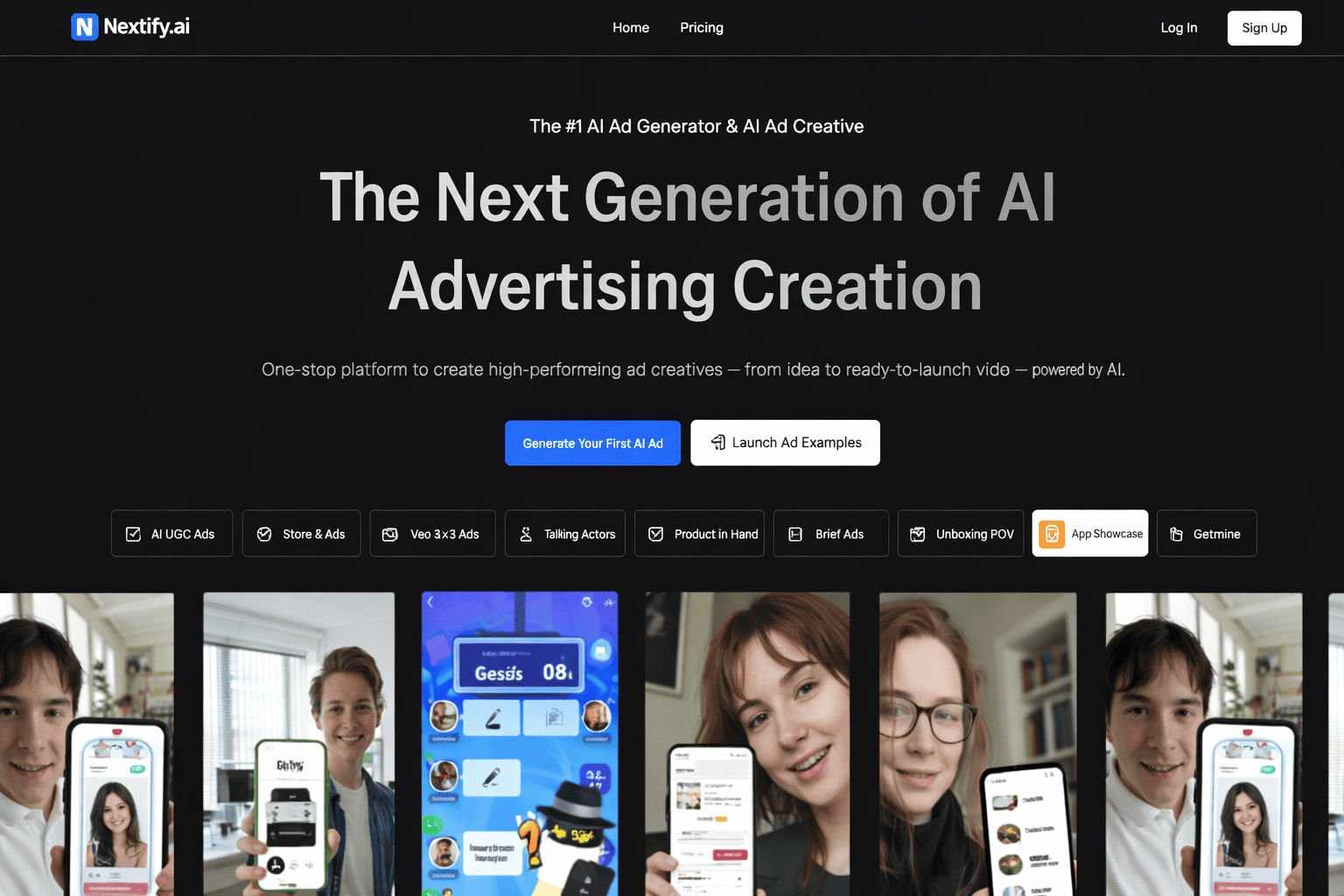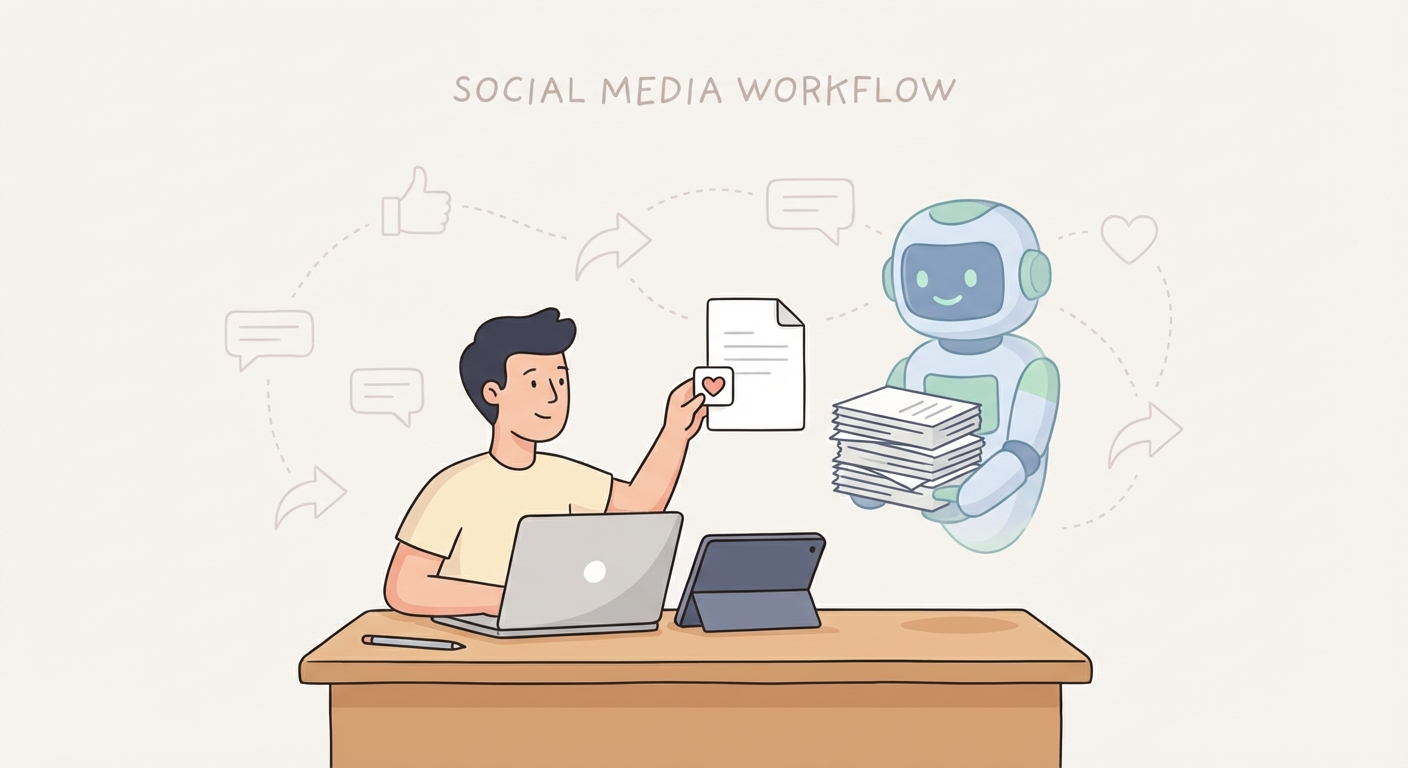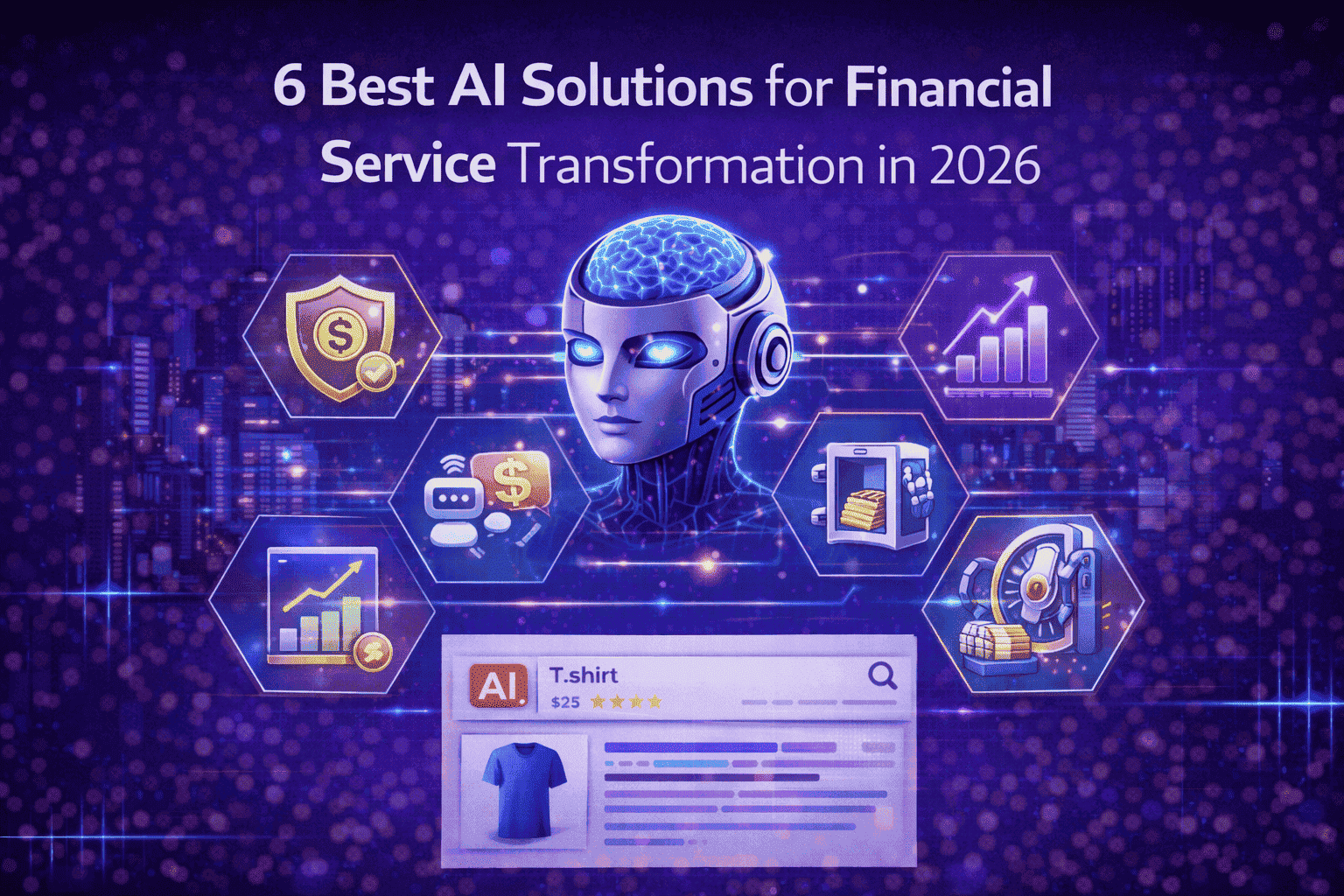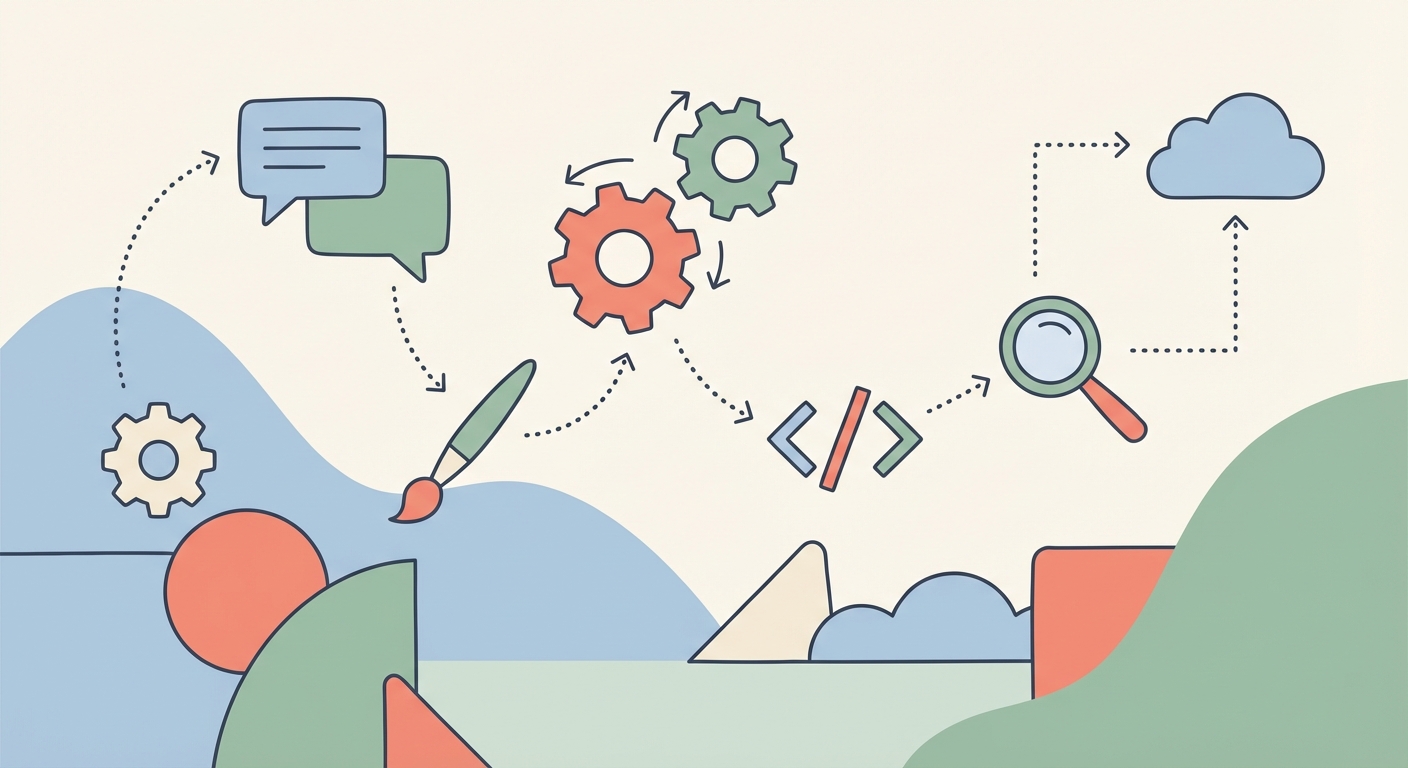Exploring the Impact of AI on Food Content for Creators
TL;DR
- This article covers the revolutionary impact of ai on food content creation. It also examines how AI tools are transforming recipe development, food photography, blog post writing, and social media marketing for food creators. We also dive into the ethical considerations and future trends shaping the intersection of ai and culinary content.
Introduction: The AI Revolution in Food Content Creation
Alright, let's dive into this whole ai in food content thing, huh? It's kinda wild to think about, but before you know it, you'll be asking ai what to make for dinner every night. Some folks might scoff, but mark my words – ai is about to shake up how foodies and creators do their thang.
ai isn't just for self-driving cars or those creepy deepfakes anymore. It's worming its way into the creative world, and food content is next on the menu. We're talking about ai tools that can:
Generate recipes based on whatever random ingredients you have lying around in your fridge. No more staring blankly into the abyss that is your crisper drawer!
Write drool-worthy descriptions that'll make your grandma jealous of your copywriting skills.
Even suggest optimized video scripts to maximize engagement on platforms like TikTok and Instagram. It's getting kinda crazy.
Food content is huge. People love looking at pictures of other people's food. I don't know why, but they do. And it's a really competitive space, so any edge you can get is welcome.
The national humanities alliance showcases the full range of higher ed-based publicly engaged humanities initiatives, presenting a cross-section of over 2,000 undertaken over the past decade from all 50 states, the District of Columbia, and Puerto Rico. National Humanities Alliance
To kinda show you how this works, here's a simple look at how ai might be used in the food content pipeline:
(Diagram 1: A flowchart showing the stages of food content creation, with AI integrated at various points. For example, "Idea Generation" box links to an AI icon, which then links to "Recipe Development." Another path shows "Visual Creation" linking to an AI icon for "Image Enhancement," leading to "Content Publishing.")
So, what does all this mean? Well, next up, we'll look at some of the specific AI tools that are already changing the game for food content creators.
AI-Powered Recipe Development: From Idea to Plate
Okay, so you're a food content creator, and suddenly everyone's talking about ai recipe development. Is it hype? Is it actually useful? Let's figure this out.
Think of ai as a super-powered brainstorming partner. It can sift through millions of recipes, identify flavor trends, and even suggest combinations you’d never dream up on your own. Got some leftover kale and a jar of harissa? Throw it into an ai recipe generator, and boom – you might get a surprisingly delicious kale and harissa frittata recipe!
ai algorithms can generate new recipe ideas based on ingredients, dietary restrictions, and flavor profiles.
Tools analyze existing recipes and suggest variations.
Overcoming creative blocks becomes easier with ai assistance.
Well, that's the thing. ai can give you the idea, but it's up to you to refine it, add your personal touch, and make it truly shine. It's like ai is the sous chef, and you’re the head chef.
Here's where ai gets really interesting. Imagine an ai that knows you love spicy food, are trying to cut back on carbs, and are allergic to shellfish. That ai can then generate recipes specifically tailored to your tastes and needs.
ai can personalize recipes based on user preferences and dietary constraints.
Machine learning understands user taste profiles.
Increased user satisfaction and engagement are potential outcomes.
It's kinda like having a personal chef who anticipates your cravings before you even do.
ai can also analyze recipes to optimize nutritional content. Need to lower the sodium? Want to boost the protein? ai can suggest ingredient substitutions and adjustments to portion sizes – basically, it helps you make healthier food.
ai analyzes recipes to optimize nutritional content.
Predicting taste preferences and improving flavor combinations is possible with ai.
Ingredient substitutions for healthier options can be suggested.
So, ai can help you with:
Idea generation: Overcoming creative blocks.
Personalization: Tailoring recipes to individual needs.
Optimization: Balancing nutrition and taste.
Now, let's be clear: ai isn't going to replace human creativity anytime soon. But it can be a powerful tool to help food content creators work smarter, not harder. Next up, we'll explore how ai is changing the copywriting game for food blogs and social media.
Enhancing Visual Appeal: AI in Food Photography and Styling
Okay, so visual appeal... I mean, let's be real, nobody wants to look at ugly food. It just doesn't make you wanna eat it, does it? That's where ai is stepping in, trying to make our food pics pop.
ai isn't just for slapping filters on your vacation pics anymore. It's getting serious about food photography, and honestly, some of these ai-powered editing tools are kinda mind-blowing.
Automatic color correction is a game-changer. Remember those days of fiddling with sliders for hours trying to get the white balance right? ai can analyze the image and make those adjustments in seconds. It's not always perfect, sometimes it makes things too saturated, but it's a great starting point.
Background removal? Easy peasy. Want to make that burger the star of the show without the messy kitchen in the background? ai can do it. And it's getting really good at detecting edges, so you don't end up with weird, jagged lines.
Object enhancement is kinda neat too. ai can sharpen details, boost textures, and even fill in missing pixels. It's like giving your food a little digital makeover.
All this stuff used to take hours in photoshop, and now? Click, click, done. For content creators who aren't photoshop wizards, this is a lifesaver.
Okay, so you got a nice-looking dish, but how do you make it look amazing? That's where ai styling suggestions comes in.
Composition feedback in real-time? Yeah, that's a thing. Some apps will analyze your setup and tell you if your composition is off-balance, or if your lighting is whack. It's like having a pro photographer whispering in your ear.
Lighting suggestions are also super helpful. ai can analyze the shadows and highlights in your photo and suggest ways to improve the lighting. It might tell you to move your light source, add a reflector, or diffuse the light.
Arrangement tips are clutch, too. ai can suggest how to arrange the food on the plate, what props to use, and what angles to shoot from. It's all about making that food look as appetizing as possible.
With these tools, you can get seriously impressive visuals without needing to be a professional food stylist. It's all about leveraging ai to get that extra oomph.
Now this is where things get really interesting. ai can create food photos from scratch. I know, it sounds like sci-fi, but it's happening.
Text-to-image generation is getting wild. You can just type in "a close-up shot of a juicy steak with crispy potatoes and a creamy sauce" and ai will generate a photo that matches your description. It's not perfect, but it's getting better all the time.
Stylized visuals are also on the table. Want a watercolor painting of a bowl of ramen? ai can do it. Or maybe a retro-style illustration of a stack of pancakes? ai's got you covered.
Unique content becomes way easier to create. ai can churn out visuals that stand out from the crowd, helping you grab attention on social media.
While ai-generated images might not have the soul of a real photograph, they're a super useful tool for brainstorming, creating mockups, and generating unique content.
So, what's next? Well, ai can help creators optimize video for different platforms by analyzing visual elements, but first, we'll dive into how ai can write killer copy for your food blog and social media posts.
Crafting Engaging Narratives: AI Writing Tools for Food Bloggers
Okay, so you're a food blogger, right? You probably spend, like, 80% of your time just writing. And let's be honest, sometimes staring at a blank page is the worst. But what if ai could help with that? I mean, seriously speed up the process?
ai writing tools are getting seriously good at generating content based on, well, pretty much anything you give it. Throw in some keywords – "vegan chocolate cake," "easy weeknight dinner," "spicy korean noodles" – and an outline (or even just a vibe), and it'll spit out a draft blog post.
Stuck on an intro? ai can create a few different options, from witty and engaging to straight-to-the-point and informative. It's like having a brainstorming partner who never runs out of ideas. Imagine this: you tell it, "write a catchy intro about the best chocolate chip cookie recipe ever," and it gives you five different versions, each with a different angle.
Describing a dish? ai excels at crafting mouthwatering descriptions that make your readers drool. It can highlight textures, aromas, and flavors in a way that’s way more engaging than just listing ingredients. I saw one blogger who used it to spice up descriptions of his dishes in his blog.
Need a solid conclusion? ai can summarize your key points and leave your readers with a lasting impression. No more ending your posts with a lame "enjoy!" Instead, a compelling call to action or a thought-provoking question.
It's not about letting ai write the whole thing for you. It's about using it to get started, overcome writer's block, and save time on the more tedious parts of the writing process.
Let's face it, nobody starts a food blog just for the fun of it, right? You want eyeballs on your delicious creations! That's where seo comes in, and ai can be a surprisingly helpful tool for that too.
Keyword Research: ai can analyze search trends and suggest relevant keywords to use in your blog posts. This helps you target the topics that people are actually searching for, so your content is more likely to rank higher in search results.
Meta Description Generation: These short summaries appear under your website's title in search results. ai can craft compelling meta descriptions that entice people to click on your link. Think of it as your sales pitch in the search engine results page.
Readability Analysis: ai can assess the readability of your content and suggest ways to simplify your language and sentence structure. This makes your blog posts more accessible to a wider audience, which can improve your seo and engagement.
You know, not everyone is looking for the same thing. My grandma wants something different than my Gen Z cousin.
Tailoring Tone: ai can help you adjust the tone of your writing to resonate with different demographics. For example, you might use a more formal tone for a sophisticated food blog aimed at experienced cooks and a more casual, playful tone for a social media post targeting younger foodies.
Adapting Style: ai can adapt your writing style to suit different platforms. A long-form blog post might require a more detailed and descriptive style, while a short Instagram caption needs to be punchy and concise.
Localizing Language: If you're targeting an international audience, ai can help you translate your content into different languages and adapt it to local customs and preferences. This can significantly expand your reach and engagement.
So, what's the verdict? ai isn't going to replace food bloggers entirely, but it is a powerful tool that can help you craft engaging narratives, optimize your content for search engines, and personalize your message for different audiences. It's like having a super-powered writing assistant that's available 24/7.
Next up, we'll talk about how ai can help you optimize your video content.
Social Media Marketing: AI's Role in Expanding Reach and Engagement
Social media, right? It's not just for posting vacation pics and arguing with strangers anymore. Food content creators know this, and they're always looking for ways to get their stuff seen by more people. That's where ai comes in.
Remember the days of just posting whenever you felt like it? Yeah, those are long gone. ai tools can now analyze tons of social media data to figure out the absolute best times to post for maximum reach. It's kinda like having a crystal ball that tells you exactly when your audience is most likely to be scrolling through their feeds.
ai algorithms can identify patterns in audience behavior, like when your followers are most active and engaged.
You can also use ai to automatically schedule posts across different platforms, freeing up your time to focus on creating more content. It’s one less thing to worry about, honestly.
Plus, many of these tools offer performance tracking, so you can see what's working and what's not.
Captions, man—they can be a struggle, especially when you're trying to be clever and engaging all the time. And let's not even talk about hashtags. ai can take a lot of that pain away, though.
ai can generate captions that are tailored to your specific images or videos, making it easier to make social media post that grabs attention. It can analyze your content and suggest catchy phrases, relevant keywords, and even emojis!
It can also suggest relevant hashtags that'll help you reach a wider audience.
Think of the time you'd save if you didn’t have to sit there racking your brain for the perfect words. I mean, that alone is worth its weight in gold.
Staying on top of social media trends is a full-time job in itself. But what if ai could do it for you?
ai can analyze social media data to identify trending topics and figure out what people are talking about right now.
It can also gauge the overall sentiment towards your brand or content. Are people loving it? Hating it? Somewhere in between?
This allows you to tailor your content to align with current trends and create stuff that's more likely to go viral.
I saw this one creator use ai to find out that everyone was going crazy for "cozy autumn vibes." So, they started posting pics of pumpkin spice lattes and fuzzy socks, and their engagement went through the roof. It's all about giving the people what they want, you know?
(Diagram 2: A visual representation of social media engagement metrics, perhaps showing how AI-driven insights lead to increased reach, likes, shares, and comments. It could include icons for different platforms and data analysis.)
ai's not gonna replace your creativity, but it can be a powerful tool to help you expand your reach and connect with your audience on a deeper level. Now, let's talk about the not-so-fun stuff.
Ethical Considerations and Challenges
Okay, so ai's helping us make awesome food content; that's cool. But, like, what about the icky stuff? There's gotta be a downside, right? Turns out, yeah, there are some things to consider before we all just let the robots take over our food blogs.
Let's be real, people connect with you. Your quirks, your story, that time you set the kitchen on fire trying to bake a cake – that's what makes your content yours. If ai starts writing everything, will it still feel authentic? Will your audience be able to tell the difference? That’s the question.
Maintaining authenticity is vital. Recipes passed down through your family, a unique take on a classic dish, or a personal anecdote can't really be replicated by ai, can they?
There's an ethical dimension, too. If you're using ai to generate content, should you be upfront about it? Some people might feel misled if they think you slaved over a hot stove, when really, it was an algorithm.
As Nan Kim points out, eyewitness testimony and first-hand documentation are essential for countering historical distortion [Kim, 2023]. This highlights the importance of genuine human experience and lived narratives, which ai currently cannot replicate, in building trust and providing authentic accounts.
Okay, so ai spits out a recipe that becomes a viral sensation. Who owns it? Is it you, because you prompted the ai? Does the ai company have a claim? It's a legal minefield, honestly.
Copyright gets tricky. ai models are trained on massive datasets of existing work. Could your ai-generated recipe be infringing on someone else's copyright, even accidentally?
Licensing agreements are a must-read. You need to understand what you can and can't do with the content the ai generates.
A CopyrightDatabaseAPI would be a hypothetical service that allows you to query a vast database of copyrighted works to check for potential infringements. It would likely involve sophisticated algorithms to compare new content against existing material.
def check_copyright(recipe_text):
# Connect to a copyright database (this is a simplified example)
# In a real scenario, this would involve complex API calls and data matching.
copyright_db = CopyrightDatabaseAPI()
matches = copyright_db.search(recipe_text)
if matches:
print("Potential copyright issues found!")
else:
print("No copyright issues detected.")
ai learns from data, right? What happens if that data is biased? You might end up with an ai that only suggests recipes from Western cuisine, or that perpetuates harmful stereotypes about certain foods.
ai can perpetuate biases in training data. If the ai is trained on data that favors certain cuisines or dietary preferences, it will likely reinforce those biases. This could exclude diverse voices and perspectives.
Misinformation is a risk, too. An ai might generate inaccurate nutritional information, or promote unsafe cooking practices. Fact-checking is still on you.
So, what's the takeaway? ai can be a super useful tool, but it's not a magic bullet. It's up to us, the creators, to use it responsibly and ethically. Next up, we'll dive into the exciting possibilities for the future.
The Future of AI in Culinary Content: Trends and Predictions
Alright, so what's next for ai in the culinary content world? Honestly, it feels like we're just scratching the surface, but the future's looking pretty tasty – even if it's a little unpredictable.
We're already seeing ai get better at understanding what we really mean when we type in a search query. Think about it: instead of just spitting out recipes with "chicken," it'll know you want something spicy, easy to make on a weeknight, and maybe even something that uses up those sad-looking veggies in your fridge.
Improved Natural Language Processing (nlp) is gonna be huge. ai will be able to understand the nuances of language, not just keywords. No more weird recipe suggestions that don't make sense. It'll get your vibe, man.
Better Image Recognition means ai could eventually "taste" food just by looking at a picture. Imagine ai suggesting the perfect wine pairing just by analyzing the colors and textures in your food photo!
More Creative Content Generation is on the way too. ai might start writing scripts for cooking shows, designing entire food blogs, or even composing music to go with your meal.
Forget just seeing food content; what about experiencing it? That's where augmented reality (ar) and virtual reality (vr) come in, and ai is gonna be the chef calling the shots.
Immersive Food Experiences could become the norm. Imagine wearing a vr headset and feeling like you're actually in a Michelin-star restaurant, even if you're just eating leftover pizza at home.
Real-Time Personalization means ai could adjust recipes and visuals based on your current mood and preferences. Feeling stressed? ai might dim the lights in your vr kitchen and suggest a calming chamomile tea recipe. The Research + Activism Bibliography is a comprehensive bibliography of research and activism projects, offering a glimpse into how such personalized experiences might be developed and studied.
Interactive Culinary Experiences are coming too. ai could guide you through a recipe step-by-step, offering tips and tricks based on your skill level. Kinda like having a celebrity chef in your kitchen – without the ego.
So, where does all this leave the humans? Are food content creators gonna be replaced by robots? Nah, I don't think so, but their roles will change.
Creativity and Storytelling will be more important than ever. ai can generate content, but it can't tell a story like a human can. People want to connect with you, not a robot.
Human Connection will matter even more. As ai-generated content becomes more common, people will crave authentic experiences and relatable personalities.
Adapting and Embracing AI is key. Creators who learn to leverage ai tools will be the ones who thrive. Think of ai as a super-powered assistant, not a replacement.
"The key is to understand how ai can augment your creativity, not replace it," as Dr. Bernardo Pereira Nunes from the Australian National University puts it.
The future of food content is exciting, but it's also a little daunting. ai is changing the game fast, and it's up to us to keep up. But hey, isn't that what makes life interesting? Get ready for a wild, delicious ride.
Conclusion: Embracing AI to Elevate Food Content
Okay, so we've talked a lot about ai and food content, right? Generating recipes, making pictures look amazing, writing blog posts - it's a whole new world. But what's the real takeaway here?
The biggest thing is, ai isn't some scary monster that's gonna steal your job, unless you let it. Think of it more like a really enthusiastic intern who's always ready to help, even if they need a little guidance.
Efficiency Boost: Free up time and energy.
Enhanced Creativity - ai can help you create new ideas, then you take it from there.
Data-Driven Decisions: ai provides insights for optimizing content strategies.
Remember, with great power comes great responsibility, y'know? Don't let ai perpetuate biases or churn out misinformation. Fact-check, people! The research + activism bibliography is a great resource for research and activism projects.
Don't be afraid to dive in and see what ai can do for you. Try different tools, experiment with prompts, and find what works for your style. As Dr. Nunes mentioned, ai can augment creativity, not replace it.
It's all about figuring out how to use ai to make your food content even more amazing, not letting it turn your blog into a soulless robot-fest.




